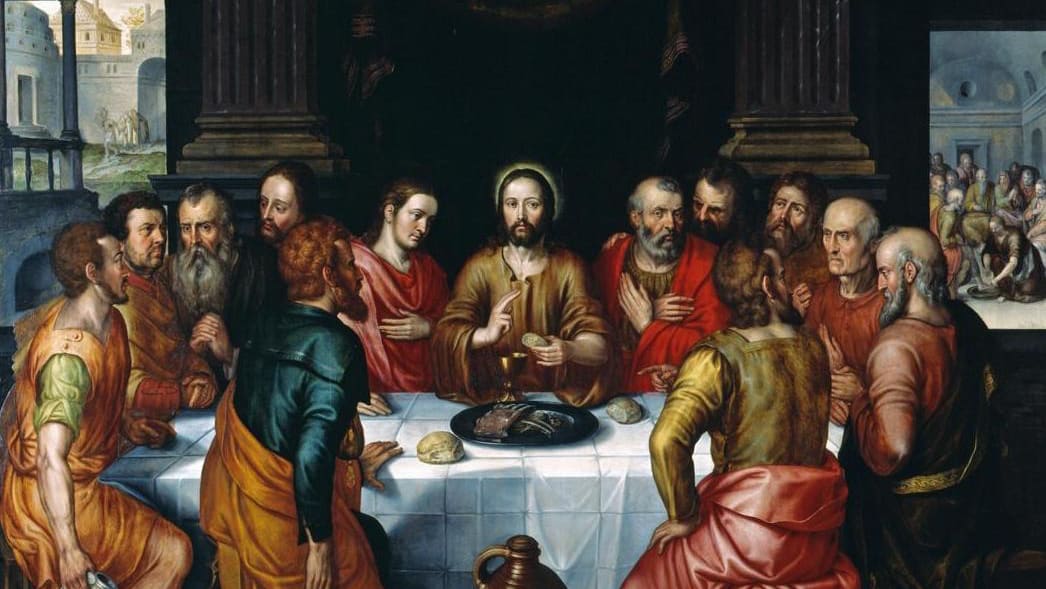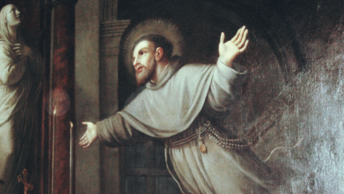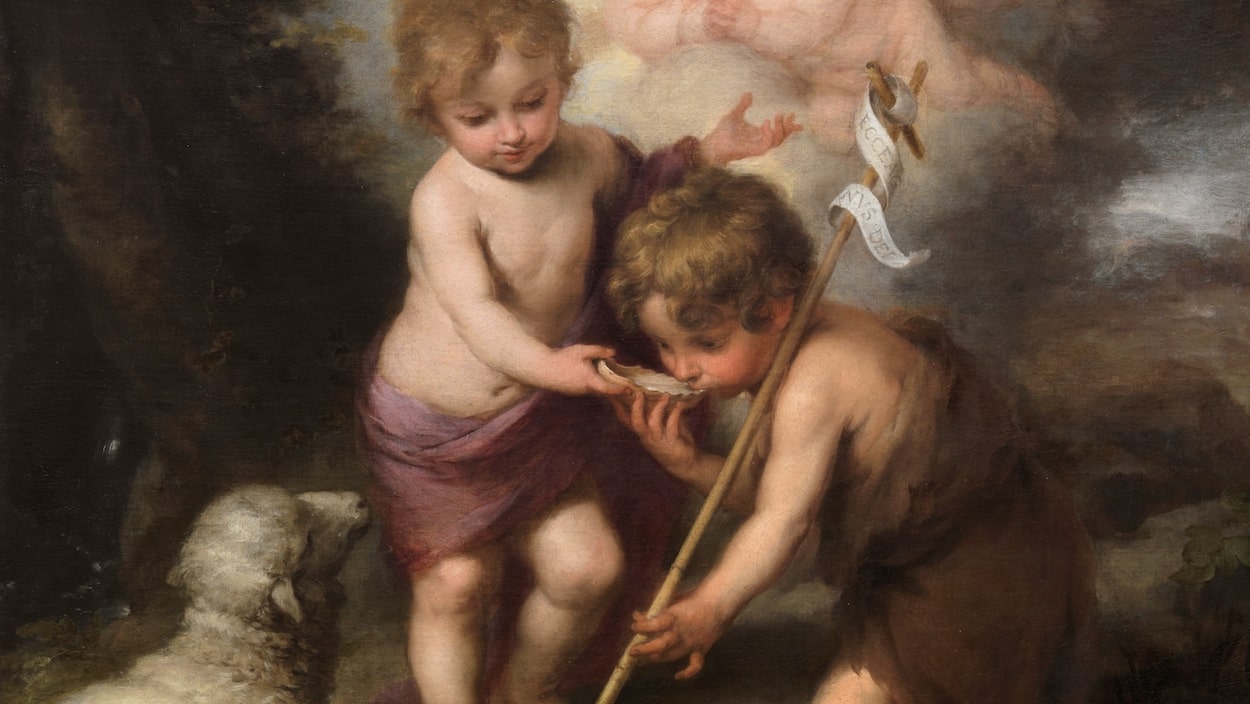Last Sunday, if you recall, we contemplated how Jesus builds his Church by giving Simon and each one of us a new name that emphasizes our best personality trait in God’s eyes. Simon was given the name Rock (rendered poorly by the English word Peter; better rendered by kephas in Aramaic, petra in Greek) because of the solidity and firmness that he would have received from the Holy Spirit as the foundation of Christ’s universal Church.
Being a work in progress, we too should find out what is our best personality trait, the best gift we received from above and which the Holy Spirit can use and enhance to make us better contributors in the building of the Church, the Body of Christ. (cf. 1 Corinthians, chapter 12)
The building of the universal Church is the Father’s grandiose plan; it is Jesus’ mission. However, as potential contributors endowed with freedom, in the building of the Church we must pass the test of pain and dying; we must embrace the Paschal Mystery in its totality better than Simon Peter did at first. Regrettably, Simon Peter and every one of us can be a “Satan,” can become one who tears down rather than builds, if we “freeze” our attention on our share of suffering and dying.
Our mind, and our whole being with it, would be “glued” to the scary, vexing part of having to suffer greatly and to die. This unbecoming reaction is the result of a colossal mistake. Most likely, whenever we had to suffer we dealt with our pain relying on our meager resources and on some prayers from family members and trusted friends.
We forgot quickly that we are intimately one with the Risen Lord, with our heavenly Mother and with all the Saints. Hence, we endured our sufferings without the Communion of Saints! Consequently, we failed to let our mind and, with it, our whole being, look beyond the scary, daunting part and fix our gaze on the guaranteed victory ahead.
As recorded in our Gospel passage (Mt 16:21-27) for this 22nd Sunday in Ordinary Time, Simon Peter’s reaction is understandable because it happened before the Resurrection; yet he was angrily called “Satan” by Jesus.
We should expect, we deserve even an angrier reaction because the global, awesome transformation generated by the Resurrection has been happening for 20 centuries! Well, my dear friends in Christ, notice how Jesus does not mince words in front of such forgetfulness of the last, glorious part of the Paschal Mystery!
For Jesus this way of thinking is simply diabolic in the sense that Satan doesn’t want us to go through the whole Paschal Mystery in union with him. Satan’s strategy is, first, “to freeze” our gaze on the cross so that we would not “lose” our life for Christ; then, his strategy calls for obscuring our vision of the Resurrection which is the only way to “save” our life.
For the Church, who has the mission of assisting all of her members to live fully, courageously and trustingly the whole Paschal Mystery, it is of extreme importance that they are all fed often and fully at the Eucharistic Table.
The Eucharist is the best weapon we have to foil Satan’s strategy. Strengthened by the Flesh of the Lord we can carry our cross and follow in his footsteps with full and unwavering reliance on the power of the Holy Spirit so that we can offer our bodies for each other the way Jesus offered his on Calvary for the whole world.
I give you a new commandment: love one another. As I have loved you, so you also should love one another. John 13:34
To the same end, St. Paul (Romans 12:1-2) urges us all to live through the whole Paschal Mystery with Christ by offering our bodies as a living sacrifice, holy and pleasing to God, our spiritual worship.
Thus, in perhaps simpler terms, through the pen of St. Paul, God urges us to become Eucharist with Jesus for each other.
The term “body,” I think, refers to our self with all our physical assets, skills and gifts that are indispensable for implementing the new commandment. God doesn’t need our bodies, our “selves.” Those who need to have us sacrifice our bodies (including even perhaps up to the ultimate sacrifice) are other members of the Church.
Fr. Raniero Cantalamessa, (a most famous preacher to the Pope’s household from the time of St. John Paul II, to Benedict XVI and to Francis) has an inspiring suggestion that would help us offer our bodies as a living sacrifice. When the priest repeats the words of Jesus: “For this is my Body, which will be given up for you,” we should say silently: “This is also my body that I am willing to give up for you and you and you too.” Then, as the priest says: “For this is the chalice of my Blood…” we should say silently: “This is also the chalice of my blood, and I am willing to sacrifice it for you, and for you and for you too.”
These two humble statements would be incredibly beautiful and helpful to us in our spiritual growth. But, they also show how inappropriate it is for some to act “in isolation” from the rest of the Community of faith present at the same Sacrifice of the Cross. They conduct themselves as if they were having their little personal Mass within the Eucharistic Celebration as intended by Jesus in today’s gospel.
For those who participate with the right inner disposition there is also the issue of having to contend with their human frailty. Indeed, what Fr. Cantalamessa proposes is quite helpful, yet many could implement it only for a while.
For too many, the routine, the drudgery, the boring grind of daily life make them fall victims to lukewarmness. At first, they would resist giving up their bodies in loving service to others and, then, they, like the prophet Jeremiah, might begin to resent it altogether.
In spite of this risk for ourselves, we shall thank God, for He has called us once again to do Eucharist together. We have an obligation to remind each other to “unglue” our minds from the weight and shape of our cross and look past all the pain and the “dying” that are part of our life.
Before we can truly and generously offer our bodies as a living sacrifice we ought to feel inside the same fire that made it impossible for Jeremiah to resist the Lord’s invitation and to choose a separate path (cf. Jeremiah 20:7-9). Before we can implement the new commandment, we ought to remind each other to look beyond the cross to the Resurrection which was, is and will be forever, not our doing but God’s.








